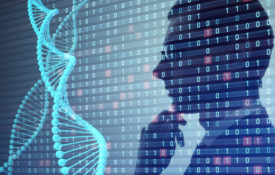-
The Fine Line Between Helpful and Harmful Authenticity
APS Member/Author: Adam Grant Waiting backstage for my name to be called, I started feeling the familiar flutter of butterflies. It caught me off guard, because I thought I’d conquered my public speaking nerves. In the span of a decade, I’d gone from shaking in front of a classroom to calmly delivering keynote speeches for audiences of 20,000. It was supposed to be anxiety then, serenity now. But something was different today: I was addressing the TED staff at their annual retreat. It was a whole room full of people who judge the world’s most electrifying speakers for a living. I had a dilemma: Should I acknowledge my jitters out loud?
-
When the Pandemic Leaves Us Alone, Anxious and Depressed
For nearly 30 years — most of my adult life — I have struggled with depression and anxiety. While I’ve never felt alone in such commonplace afflictions — the family secret everyone shares — I now find I have more fellow sufferers than I could have ever imagined. Within weeks, the familiar symptoms of mental illness have become universal reality. A new poll from the Kaiser Family Foundation found nearly half of respondents said their mental health was being harmed by the coronavirus pandemic. Nearly everyone I know has been thrust in varying degrees into grief, panic, hopelessness and paralyzing fear.
-

On Educational Attainment, It’s Nature and Nurture, Study Suggests
The reason people achieve a certain level of education may depend partly on genetic influences mediated by the home environment.
-
Why Coronavirus Conspiracy Theories Flourish. And Why It Matters.
The coronavirus has given rise to a flood of conspiracy theories, disinformation and propaganda, eroding public trust and undermining health officials in ways that could elongate and even outlast the pandemic. Claims that the virus is a foreign bioweapon, a partisan invention or part of a plot to re-engineer the population have replaced a mindless virus with more familiar, comprehensible villains. Each claim seems to give a senseless tragedy some degree of meaning, however dark. ... “It has all the ingredients for leading people to conspiracy theories,” said Karen M. Douglas, a social psychologist who studies belief in conspiracies at the University of Kent in Britain. ...
-
The Coronavirus Outbreak Keeps Humans from Touching. Here’s Why That’s So Stressful
With people around the world practicing social distancing and self-isolation to curb the further spread of coronavirus, some are starting to feel the effects of a lack of human touch. Whether it’s shaking a coworker’s hand or hugging a friend, most people are accustomed to some level of platonic physical touch on a daily basis. But for those who are quarantining alone or with people with whom they don’t have physical contact, loneliness and social isolation are growing health concerns. ... According to Dacher Keltner, a professor of psychology at the University of California, Berkeley, a lack of physical touch can affect people in more ways than they might realize.
-
The Science of Helping Out
At a time when we are all experiencing an extraordinary level of stress, science offers a simple and effective way to bolster our own emotional health. To help yourself, start by helping others. Much of the scientific research on resilience — which is our ability to bounce back from adversity — has shown that having a sense of purpose, and giving support to others, has a significant impact on our well-being.

